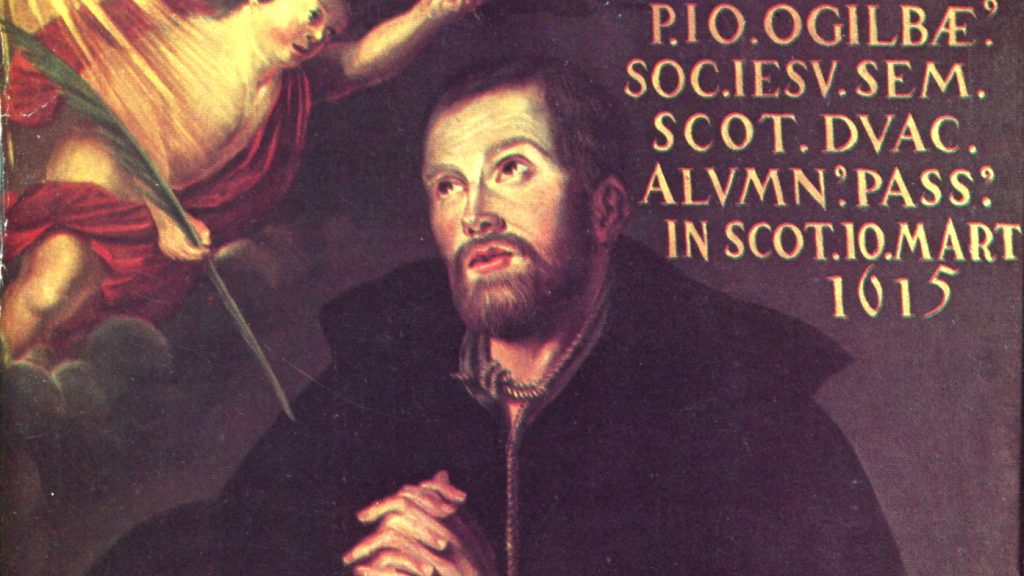St. John Ogilvie was born in 1579 to a noble family in Scotland. Some of his relatives had remained Catholic, while others followed John Calvin and had become Presbyterians. John was raised as a Calvinist, but he had doubts about its compatibility with Scripture. He was unable to reconcile Calvin’s ideas about predestination with Scripture passages teaching that God loves all people and wills them to be saved.
At age 17, John decided to join the Catholic Church, and in 1599, he became a novice in the Society of Jesus. After extensive training, he was ordained a Jesuit priest in 1610 in Paris.
John wanted to return to his home and encourage people to return to the Church. He served as a priest in France for a while, but requested to be sent back to Scotland. Although many members of his order warned him that this would be a dangerous mission, in 1613, John was allowed to go back to Scotland.
Once there, he had difficulty in his mission to convert. Many members of the upper class had no interest in returning to the Church. John worked among the poor Scots who had kept the faith, and returned to France to seek advice.
The French Jesuits ordered John to return to Scotland, where he resumed his ministry with the underground Church there and converted a small number of people. A potential “covert” turned out to be an informer, and John was arrested and interrogated.
John was charged with celebrating Mass within the king’s realm, for which he was imprisoned for two months. An iron bar was attached to his feet so he could not move in his cell. Despite this treatment, he refused to give evidence against Scottish Catholics.
John endured tortures during his time in prison. His hair and fingernails were pulled out, and for nine days he was jabbed with sharp stakes repeatedly to prevent him from sleeping. He was beaten, thrown to the ground, and shouted at, but he refused to renounce his faith or betray his fellow Catholics.
John’s tormentors were impressed by his fortitude and his sense of humor in the face of these punishments. They could not spare his life, because John refused to recognize King James I as a higher authority than the Church in religious matters. John was eventually convicted on charges of high treason.
John was plied with bribes right up to the day of his execution. His refusal is recorded: For the Catholic faith, he said, he would “Willingly and joyfully pour forth even a hundred lives. Snatch away that one which I have from me, and make no delay about it, but my religion you will never snatch away from me.” When he was asked if he was afraid to die, he replied, “I fear death as much as you do your dinner.”
St. John died on March 10, 1615. Minutes before he was hanged, he tossed his rosary into the crowd. It was caught by a Calvinist nobleman, Baron John ab Eckersdorff, who later converted to Catholicism, and credited St. John with his conversion.
St. John was canonized by Pope Paul VI in 1976, and is the only post-Reformation Scottish saint.

